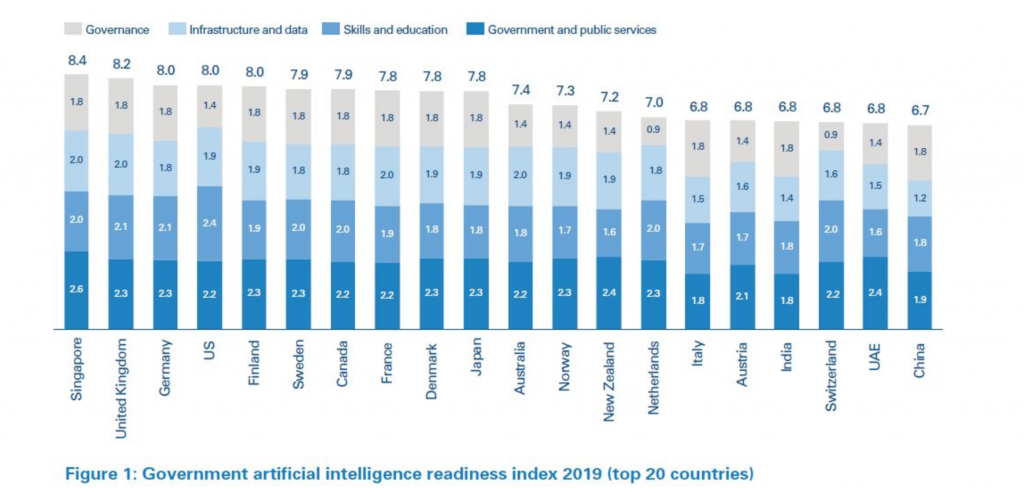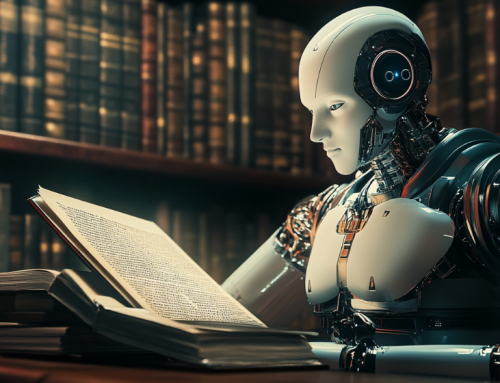Competition in AI Arms & Business Hinges on Finding Best Routes to Move Forward
Two different Forbes.com columns recently examined AI and the state of competition the United States is in with the rest of the planet to develop the best, the fastest, and the smartest version. But will the race to the top of the AI pile ever be won? And what would that look like exactly?
Forbes contributor Arun Shastri had us thinking about a quote from one of the great sci-fi writers of all time, Issac Asimov:
“People think of education as something that they can finish. And what’s more, when they finish, it’s a rite of passage. You’re finished with school. Education isn’t something you can finish.”
And Shastri asks whether the AI race is being run for the right reasons and against the right competitor:
“AI is not a singular technology that we individually own because we got there first. If we find clever, novel ways to forecast, that does not mean that others cannot find smarter methods as well. In some cases, AI may be a product that we get to design first, and perhaps even patent, but getting there first doesn’t stop others from getting there, too. As digital proliferation increases, the state of the possible is well understood by all. It’s no secret that online ordering/curbside pickup is fueled by AI. The actual algorithms (how data is stored and utilized) may be a trade secret, but the use case is not.”
Shastri writes about the case of the first automobile race held in the United States in 1895. Six motorized vehicles participated, four cars and two motorcycles, and they raced from Chicago to Evanston and back. Frank Duryea’s motorized wagon won the race, and a Benz car came in second. Duryea went on to build 13 cars, a feat in those days—but today, all over the world, we still drive Benz cars. Some journeys in life extend beyond near-term milestones—and AI in organizations is similar.
The writer goes on to point out how the AI race contestants are possibly overlooking their real competition, using AI to make businesses better than they currently are.
“There is no endpoint, no finish line. As an enabler, AI needs to keep getting better. The processes keep evolving. AI’s goal is to mimic human intelligence and help us improve.”
Another Point of View from Forbes
So even as one contributor to forbes.com writes that the race is unwinnable when it comes to AI, there is another article that claims it is vital the U.S. wins this competition.
Bernard Marr has offered this piece about his interview with Trung Ghi and Abhishek Srivastava, who co-authored an article called “The global AI arms race – How nations can avoid being left behind” about the global landscape for AI, and which countries are leading and lagging in the AI arms race. They also shared important insight for decision-makers and world leaders who want to gain a competitive edge in this critical race for AI growth.
“Artificial intelligence promises to have the same disruptive effect on today’s global economy as electricity in the 19th century…In the late 19th century, as electricity was being popularized, it became apparent that it required a new framework, as it was different to virtually every other commodity. Whoever mastered the engineering and economics of electricity would indelibly change the course of history….progress with transformative technologies was neither linear nor predictable. The benefits of electrification did not accumulate for early adopters, but for those who had identified how electrification could transform their societies within its existing context.”
AI is on track to transform countries and industries in a similar way. The countries that will reap the most benefit from AI are the ones that adopt strategies that build on a foundation of their existing local and global economic ecosystems.

So essentially both authors are right. The use of AI is equal to or perhaps greater than the invention of electricity. And if you recall, that, too, was a nasty competition between the forces that backed AC and the ones that backed DC applications of that utility. So there will be an AI race. It’s unavoidable. But much of the time your biggest competitor beating internal goals.
read more at forbes.com/sites/arunshastri and forbes.com/sites/bernardmarr








Leave A Comment